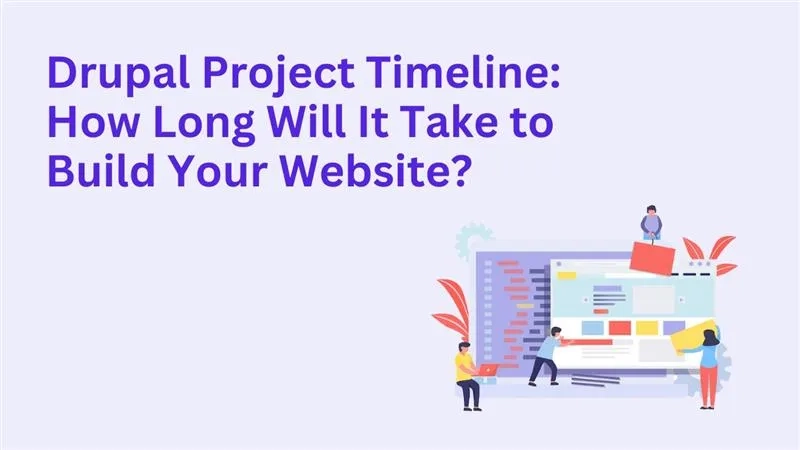Drupal Project Timeline: How Long Will It Take to Build Your Website?

One of the first questions businesses ask when planning a new website is: How long will it take?
If you're building with Drupal, the answer depends on the complexity of your needs, the development approach, and how well-prepared you are with content and goals.
This guide breaks down the phases of a typical Drupal project and what factors influence the overall timeline.
Typical Timeline: A Quick Overview
While no two projects are exactly alike, here’s a general idea of how long a Drupal site takes to build:
Discovery & Planning: 1–3 weeks
Design (UI/UX): 2–4 weeks
Development & Integration: 4–10 weeks
Content Migration & QA: 2–4 weeks
Launch & Post-Launch Support: 1 week
Total estimated time: 10–20 weeks
Now let’s break it down in detail.
1. Discovery & Requirements Gathering
Before any design or code happens, the development team needs to understand your goals, audience, required features, integrations, and content structure.
Deliverables in this phase often include:
Site architecture and content map
Functional requirements
Technical stack decisions
The more clarity you provide upfront, the faster the next stages can move.
2. UX and Design Phase
This phase focuses on layout, branding, and how users interact with your site. Depending on your goals, this might include:
Wireframes and prototypes
Responsive design mockups
User testing and feedback cycles
Design delays often happen if feedback loops are slow. Having a clear decision-making process speeds things up.
3. Development and Module Integration
Once designs are approved, the site moves into the build phase:
Custom theming
Core and contrib module configuration
API and third-party service integrations
Building custom features or content workflows
This is usually the longest part of the project, especially if you need custom modules or complex integrations.
Looking for experienced developers who understand timelines and business impact? Explore our Drupal developer services for efficient, scalable delivery.
4. Content Migration and Quality Assurance
Whether you’re migrating from another CMS or populating new content, this phase ensures your site has everything it needs to go live:
Content population or automated migration
QA and functional testing
Accessibility and browser testing
Performance optimization
Content delays are common. If you don’t have your content ready early, it can stall the entire launch.
5. Launch and Post-Launch Support
Once QA is complete and stakeholders approve the final site, it's time to launch. Even after launch, most projects include:
Monitoring for bugs
SEO setup and performance tuning
Staff training and documentation
Drupal projects also benefit from ongoing support to stay secure and updated.
What Factors Can Delay a Drupal Project?
Here are some common blockers:
Shifting requirements mid-project
Delayed content or design approvals
Undocumented integrations
Lack of internal alignment on goals
Having an experienced team and a clear plan helps you avoid these pitfalls.
Need an Estimate for Your Timeline?
Every Drupal project is different. To get a personalized project timeline based on your needs and goals, reach out to us. We'll help you understand what to expect and how to move forward efficiently.








